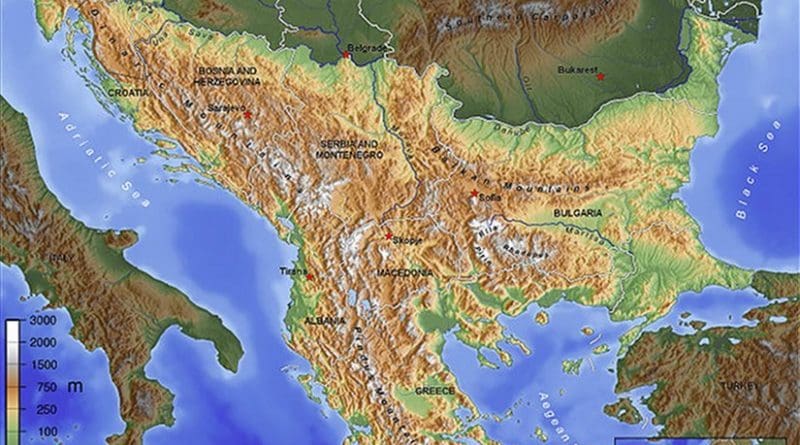Balkan States ‘Embracing Authoritarian Leadership’: Report
By Maja Zivanovic and Gordana Andric
A new report from the British House of Lords highlights concerns that countries in the Western Balkans are turning to authoritarian leaderships and nationalistic politics.
The British House of Lords warns in a new report published on Wednesday that Western Balkan countries are increasingly turning towards authoritarianism, and that stability in the region is being undermined by outside countries like Russia.
The report highlights “serious concern that gains made towards good governance and the rule of law are in danger of being lost as countries in the region turn to authoritarian leadership, nationalistic politics and state capture”.
“This is being exacerbated by an apparent reticence on the part of the international community to challenge these tendencies, as well as endemic organised crime and corruption in the region. Stability in the region has also been undermined by the influence of third countries,” it adds.
The report, entitled ‘The UK and the Future of the Western Balkans’, says that although Balkan countries’ journey towards EU membership may be important, genuine progress to combat corruption, embed the rule of law, ensure freedom of expression and achieve other reforms must be made too.
“Outside the EU but remaining a champion for accession, the UK should be a critical friend of countries in the region. The [British] government should speak out when countries in the region fall short of the values and standards required and use its influence to ensure shortcomings are recognised,” it says.
The report is being published ahead of the upcoming 2018 Western Balkans Summit, which Britain will host in July.
“And in the run-up to that summit, we will enhance our security co-operation with our Western Balkans partners, including on serious and organised crime, anti-corruption and cyber security,” British Prime Minister Theresa May said last March.
The chairman of the House of Lords’ International Committee, Lord Howell of Guildford, told BIRN that the Western Balkan states will be of continuing importance to Britain even after it leaves the EU.
“The fact that we will not be part of the EU, we believe, doesn’t conflict with the interest and the commitment Britain has to the region,” Lord Howell said.
Asked whether Britain will align its policy on the Balkans with the EU after it leaves, International Committee member Lord Hannay of Chiswick told BIRN that it would be unwise to have a completely different policy.
“It wouldn’t be in the benefit for the countries of the Western Balkans either. We have to find the way from outside of the EU to continue to work with the EU countries,” Lord Hannay said.
The report highlighted some concerns that EU has chosen “stability over democratic values” in the Balkans.
“Stability is something that is achieved but it is inadequate as it is not companied by the rule of law,” Lord Hannay said.
The report expresses concern that Russia is trying to act as a “spoiler” in the region, intent on “disrupting any closer integration with the West”.
It also notes increased Chinese investments in the region, as well as growing interest from other countries such as Turkey, Saudi Arabia and the United Arab Emirates.
It urges the British government to use July’s Western Balkans Summit to set out in detail the contribution that Britain is prepared to make, in partnership with the EU, to support stability, democracy, the rule of law and prosperity in the region.
“This initiative, coming at an important stage of the Brexit negotiations, would demonstrate that the government is indeed not leaving Europe when it leaves the EU,” it adds.

